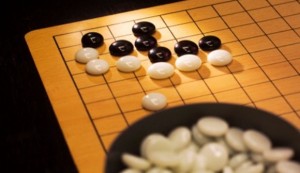Criteria first, judgment second
Any review should always hold forth a set of criteria before weighing in. Otherwise, how can anyone know what the preferences or even prejudices of the reviewer are? For the record, here are (most of) mine:
Strategy Games
- Strategy: its not a strategy game if there is one perfect solution – that would be a puzzle. For me, since its important to consider carefully what we’re talking about, I turn to sophisticated folks such as Dixit, Skeath and Nalebuff who note: its all about the decision making.”The simple rule is that unless there are two or more players, each of whom responds to what others do (or what each thinks the others might do), it is not a (strategic) game,” they write. “There must be some cross-effect of actions; what one does must affect the outcome for the other” (AND), the participants must be mutually aware of this cross effect. Going further: “Playing games requires many different kinds of skills. Basic skills such as shooting ability in basketball, knowledge of precedents in law, or a blank face in poker, (or, interfacing with a console or PC to make moves quickly and efficiently) are one kind (of skill): strategic thinking is another. Strategic thinking starts with your basic skills and considers how to best use them. Knowing how well your football team can pass or run and how well the other team can defend against each choice, your decision as coach is whether to pass or run. Sometimes, strategic thinking also means knowing when not to play.”
So, for me, and in considering the video game genre, this mostly boils down to there being:
- multiple routes toward victory, which allow you to consider and make decisions on how to face the opponent(s) based on your assessment of them. Ideally your decisions rely on strengths you believe yourself to have (either through cultivation in the game [perfect!] or through the selection of units at the start and that these strengths are selected to take advantage of perceived weaknesses of the opponent,
- there must be ways to recover from mistakes and/or turn of circumstances. You must be able to ward off the bad affects of opponents’ actions while simultaneously trying to advance your own agenda – even from a weakened position.
- to repeat, the situation should never devolve into (even the feeling that there are) “perfect” moves which must be discovered in order to win; there should be an ‘organic’ feel whereby your assess your opponents, as they assess you. There must never be (even the feeling of) an artificial setting that leads one to feeling its a puzzle.
- Units: to achieve the organic feeling, its best to have some simulation and that requires a variety of pieces. So, units must be
- distinct yet interestingly complimentary;
- they should be able to be advanced according to their use and the commanders decisions (e.g. leveling or increased abilities)
- its best if they (thereby) gain a certain “history” because you then feel that your are cultivating your own unique set of strengths, expressed through the units themselves
- Factions, should each come with distinct ways of playing (and therefore flavor), and also be well balanced.
- I pay special attention to artillery units: they must work properly (e.g. ‘over the hill’ and out of site, with increasing accuracy with spotters, etc.).
- I like games where units come out of buildings you have to assemble, often as part of a base. Constructing buildings gives players a series of decisions on what to build, how quickly to build and where to build. This leads to much strategic thinking and discovery of good (for each player) base set ups and ways to adjust offense and defense along the way. Of course, it adds to the set of ‘basic skills’ required because knowing the building “tech-tree” that enables units you want is crucial. Still, I think the benefits of the added strategic build-think outweighs the smaller inconvenience of extra basic skill requirements.
- Interface: if you can’t interact with your units and get them to do what you want, when you want, the game falls down. In other words, skills of input must be minimized so that strategic thinking skills can come to the fore. It is no fun for the coach to have to practice his dribbling constantly when he wants to figure out who to send into the Big Game. So, interface must be easy to navigate and present useful views of
- unit movements (e.g. through environment or on map)
- unit status
- battle action (i.e. the excitement of the situation played out before your eyes).
- I pay special attention to selection/deselection and grouping of units, all of which I think are fundamental to ease of use.
- Look & Feel: comes down to preference as different players will like different sorts of presentations of the game. As for myself, I prefer a sort of “miniatures” look, which is to say as the commander, you feel you are overlooking a tabletop replication of events and are able to take any point of view of your situation and surroundings (accepting fog of war limitations, of course).
- Play time: again comes down to preferences, and for me games should be 20-30 minutes per match, allowing for several matches per hour.
- Multiplayer once again depends on preferences, but since I think humans are much more fun to play than A.I., games should require coordination between teammates, and allow each players distinct, yet complimentary approaches to blossom, ideally through excellent (voice based) inter-player communication.

